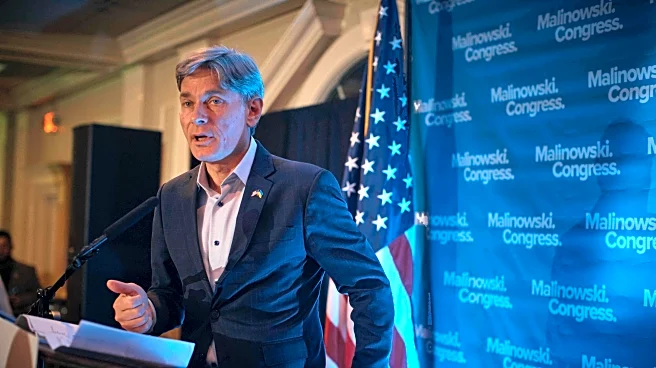What's Happening?
Lara Adekoya, owner of the Los Angeles bakery Fleurs et Sel, is experiencing significant financial strain due to tariffs imposed by President Trump's administration. These tariffs, ranging from 15% to 50%, have increased the cost of imported premium ingredients from countries like France and Japan, adding an extra $3,000 to $4,000 per month to her expenses. Despite these challenges, Adekoya has chosen not to pass these costs onto her customers, absorbing them herself. The tariffs have been ruled illegal by two lower federal courts, but the Trump administration has appealed the case to the Supreme Court. Small businesses, including Adekoya's, argue that these tariffs are unsustainable and threaten their survival.
Why It's Important?
The tariffs imposed by President Trump's administration have broader implications for small businesses across the United States. Many small business owners, like Adekoya, lack the resources to absorb increased costs, which could lead to reduced product offerings and delayed business expansion. If the Supreme Court upholds these tariffs, it could grant the president extensive authority to impose tariffs, further limiting business options for sourcing materials. This situation highlights the vulnerability of small businesses to international trade policies and the potential for significant economic impact on local economies.
What's Next?
The Supreme Court's decision on the appeal will be crucial for small businesses affected by these tariffs. If the court upholds the tariffs, businesses may need to find alternative strategies to cope with increased costs, potentially leading to price hikes for consumers or changes in product availability. Stakeholders, including business leaders and policymakers, will likely continue to debate the balance between protecting domestic industries and supporting small businesses in a global economy.











